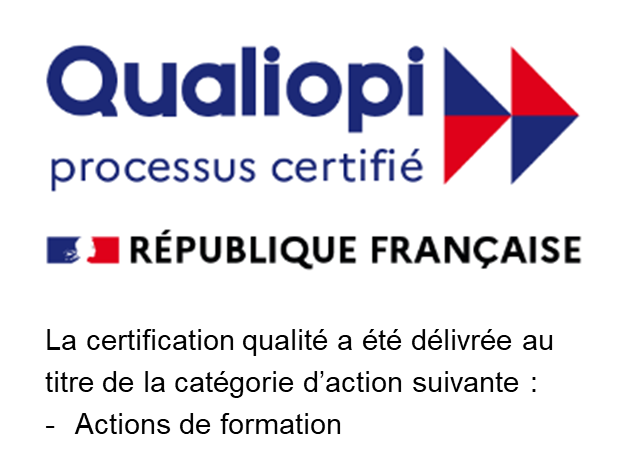COPING WITH THE TRANSITION OF EXPATRIATION
Lynsey Swords-Mccann • November 27, 2018
Relocating can be stressful. However, anticipating some of the ways in which relocation might be challenging and thinking through some possible coping strategies can go a long way to helping you to manage the transition positively and effectively. Here are some tips you might find useful:
- Focus on the many benefits and opportunities – There are many benefits and opportunities to spending time living and working in another country. There’s so many new experiences to have and opportunities to discover and it helps to try and stay focussed on these when overwhelment and doubt creeps in. Write a list of the benefits of living and working in your chosen country and pin point your own personal goals. Establish what you would like to get out of the experience personally and think of ways in which you can work on achieving these goals.
- Identify your sources of support – Identify what your new support network looks like now that you’ve moved and use it. If your new network is slow to establish initially, how can you work on extending it in your new host country. Are there any classes or activities you enjoy doing in your spare time that you could get involved in? Or look at the NetExpat Community for support. Whilst you’re working on building your new support network, leverage off the one you have just left behind via Skype, Facetime, Social Media, E Mail or phone. The world is a lot smaller than it used to be and it’s easier than ever to stay in touch with friends and loved ones.
- Be Kind To Yourself – Having been through a country relocation myself, I understand that it can feel like you’re on an emotional rollercoaster at times. Rest assured that this is a completely normal reaction to change and the mix of highs and lows will pass. They say it takes six to eight months to really settle into a new country and feel completely comfortable with your new environment/work so whilst you’re working your way through this settling in period, be kind to yourself and be patient with how you’re feeling day to day.
- Make The Most Of Your Free Time – Whether you’re working, studying or managing your home during this period of relocation, make plans for you and your family to experience everything your host country has to offer. For example, for those settled in the UK, book tickets for a show, see the many fantastic attractions that make the UK unique or take a day trip to one of the many free museums. Work on making some amazing memories you can take back home with you once the assignment is complete.
- Prioritise – It can feel that there is so much to organise when you initially move to a new country and it can feel overwhelming. Try to prioritise what needs to be done first and focus on one action at a time. Make a list of things to do in those initial few weeks and once each is complete strike a big bold line through it. You’ll be surprised how satisfying it is to see all those tasks marked off as each day passes and you become more settled!
- It’s OK To Feel Lonely, Frustrated, Angry, Fearful etc – It’s very common for negative feelings to creep in once the adrenaline of the move has subsided and your days are less busy managing the logistics of your recent relocation. Again, this is a normal reaction to transitioning into a new and unfamiliar environment. Acknowledge how you're feeling and that it’s ok to feel that way and then explore ways in which you can feel more connected to and positive about your new environment. Work on determining what you need to do personally to alleviate these feelings (and this might be different for each individual). Talk to your friends and family about how you’re feeling and be open with them about the support you need from them.
Share this post

A series of trends and events are impacting the way APAC-based companies are doing business, as well as how international organizations engage with them. As workforce borders within this active region continue to blur, intercultural agility has become more important – and more nuanced – than ever before. Whether it’s a business that's building a diverse workforce within the APAC region or a multi-national company working across cultures to do business with them, employers and the employees that work for them must forget everything they think they know about intercultural communication. Growing workforce diversity means not just knowing about the culture a business is headquartered in, but also the many cultures making up their staff. Intercultural training has therefore become a crucial investment for any business hoping to thrive in this diverse landscape.

Most mobile employees accept international relocations with mixed feelings that include excitement and curiosity. However, they’re often surprised when their move comes with more feelings of disorientation than they expected. Culture shock – the feelings of confusion, disconnectedness, and anxiety that people experience while integrating into a new culture – can make it difficult for mobile employees to transition into their new assignments effectively. It can also make it difficult for their accompanying families to settle into their new home, adding further stress to your employees’ relocation experiences. It all negatively impacts employees – but it has costly negative impacts for the organization, too. Understanding the stages of culture shock can make dealing with it easier. Below, we take a look at each and offer suggestions your employees can use for navigating them. While supporting them on their journeys helps them to integrate into their new surroundings faster and with greater ease – it also benefits business productivity, organizational goals, and the company’s bottom line. Stages of Culture Shock & Suggestions for Dealing with Them

Between rising costs and limited budgets, it’s no surprise that many organizations turn to lump sum payments to control talent mobility spending. But is this approach effective – or can it actually end up costing companies more? In this blog post, we’ll discuss the unexpected costs associated with lump sum payment models, where they can go wrong, their impacts on the employee experience, and why managed moves benefit employees and organizations in the long run. Perception vs. Reality: Lump Sum Payment Outcomes When organizations offer lump sum payments to their mobile employees, they're often being driven by a few assumptions. They believe that their mobile employees: Possess sufficient financial skills to manage their relocation budget Are savvy enough to procure the right relocation services/providers at the right times Have enough host-country knowledge to navigate area-specific nuances independently Will decrease the need for administrative resources by self-managing their relocations

Patricia Glasel has a rich international background, having lived in several different countries growing up. Her journey began in Gabon, where she was born, and extended across various African nations due to her father's work. Patricia's extensive experience as an expatriate has given her a deep understanding of the joys and challenges of living abroad. She holds M.B.A. an a degree in organizational behavior and cross-cultural training from Northwestern University, which has equipped her to support others in their global mobility journeys. After having lived in 11 countries, Patricia currently resides in France and enjoys sharing her experiences to help others navigate their expatriation adventures. Patricia also serves as a Foreign Trade Advisor for the French Government, providing high-level insights and support for international trade initiatives.

In a competitive global market, organizations face a myriad of laws, regulations, and ethical standards. And because compliance requirements differ from one country to another, a workforce’s intercultural agility plays a significant part in a company’s ability to ‘be’ compliant in the countries they do business with. Intercultural misunderstandings can be costly, leading to safety issues, lost sales and missed business opportunities, but they can also result in hefty fines, sanctions, and even being barred from operating in key markets. Because the ability to navigate cultural differences is crucial to the success and sustainability of global organizations, cultural compliance should be a part of every organization’s overall compliance strategy.

NetExpat recently interviewed two key members of the Eramet Group Team about their efforts in providing intercultural training for their international workforce through their partnership with NetExpat. The initiative is designed to enhance cultural understanding and collaboration among expatriates and multicultural teams, leading to better teamwork and productivity. The interview offers insights on the implementation, impact on performance, family integration success, and much more.

Employee well-being benefits more than just employees. It also benefits employers and the customers they serve. What many organizations don’t realize is how much intercultural agility impacts employee well-being. Below, we’ll discuss the relationship between the two and why focusing on intercultural agility should always be a part of your global talent mobility strategy. Why Employee Well-being Matters Prioritizing employee well-being makes sense from a duty of care standpoint, but it also benefits businesses. Employees that are happy and well are typically more engaged at work. Employes that are culturally agile enjoy enhanced well-being, as they’re better able to collaborate with their teammates and customers. This results in higher levels of engagement at the individual level – and enhanced collaboration and innovation among teams. Additional outcomes include a stronger company culture, brand reputation, and employee retention rate. Customers also reap the benefits. When well-being is prioritized and employees are given the tools they need to succeed, they’re more likely to provide excellent customer service and care. Businesses benefit from higher customer satisfaction scores and brand loyalty. Conversely, the risks of not investing in employee well-being can be costly:

When organizations support mobile employees during an intercultural assignment, they benefit long after those same individuals repatriate. The trouble is, too many businesses don’t see repatriation as a component of the assignment, which can have negative outcomes for both them and the employees they’ve invested in: Without repatriation support, employees face a myriad of challenges, from reverse culture shock and career uncertainty to feeling diminished. Businesses end up paying the price, from employees being disengaged to losing talent altogether. Both have negative impacts on a company’s ROI.







